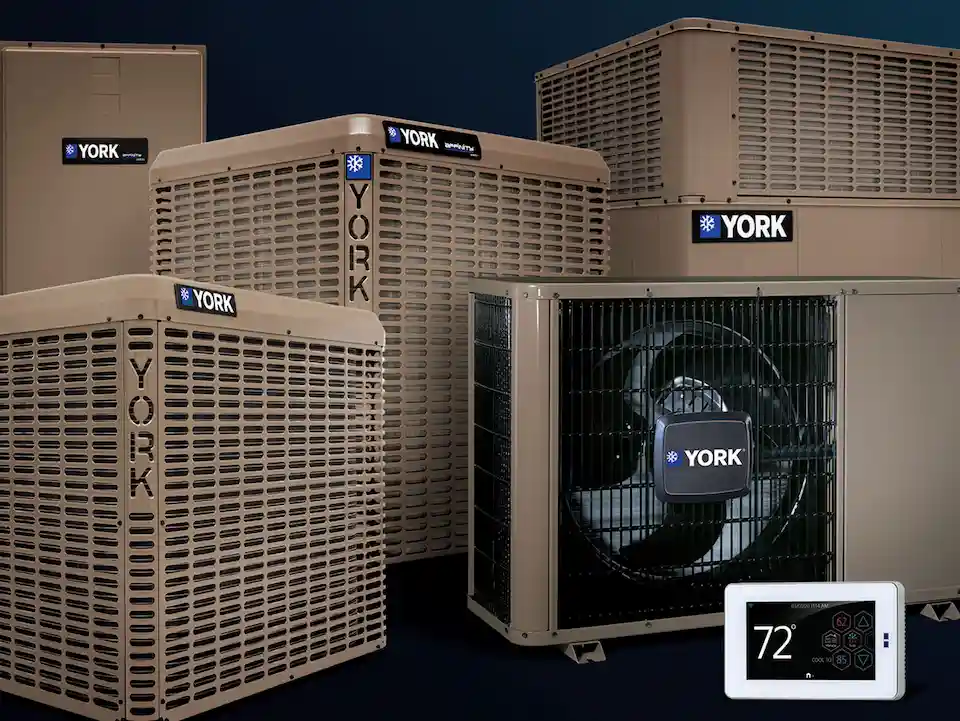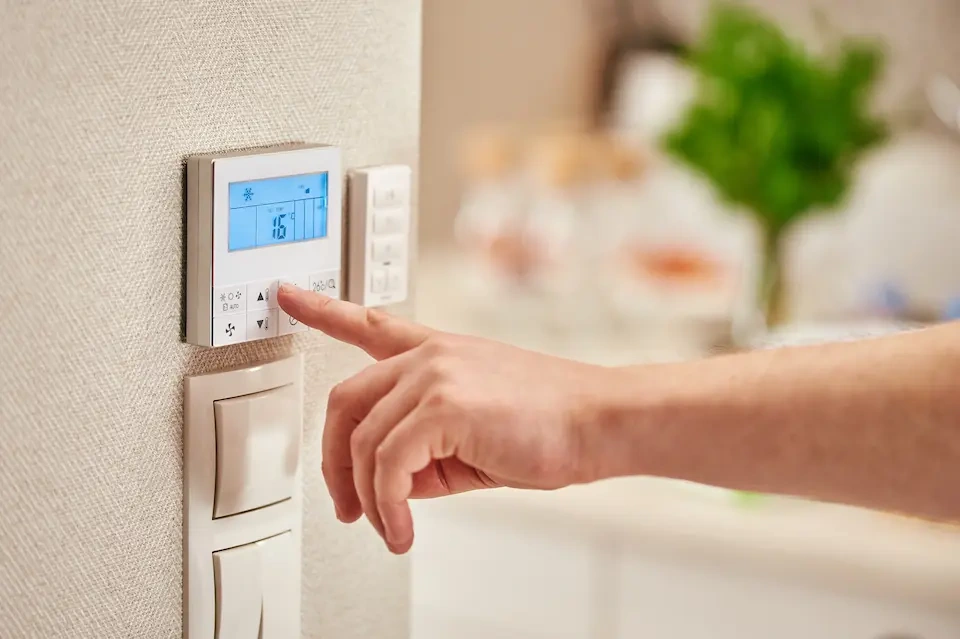October 16, 2023
Picking the Best Heating System for Your Home

When it comes to creating a cozy and comfortable living environment, few decisions are as pivotal as choosing the best heating system for homes. With our decades of experience in the heating, ventilation, and air conditioning industry, we understand the significance of choosing the best heating system for your living space.
Your house heating system not only ensures your family’s warmth during the coldest months but also plays a crucial role in your home’s energy efficiency and environmental impact. At Bowman Mechanical Services, our Raleigh heating system experts are guiding you through the process of picking the best heating system tailored to the unique needs of your home.
How to Find the Most Efficient Heating System for Your Home
When winter’s chill sets in, finding the right heating system for your home is crucial not only for your comfort but also for energy efficiency and cost savings. The sheer variety of home heating systems available today can be overwhelming, but with a little guidance from a Raleigh HVAC professional, you can make an informed decision that keeps you warm and your energy bills in check.
Assess Your Heating Needs
Start by evaluating your home’s specific heating requirements to find the best home heating system.
Consider factors such as:
- Size and Layout: The square footage of your home, number of rooms, and floors can impact heating needs.
- Climate: The local climate, including the severity of winter temperatures, will affect your heating system’s efficiency.
- Insulation: Well-insulated homes are more energy-efficient, so assess your home’s insulation status.
Consider Energy Efficiency
Two important efficiency ratings to look for in home heating systems are:
- SEER (Seasonal Energy Efficiency Ratio): This rating measures the efficiency of air conditioning systems. The higher the SEER rating, the more efficient the system.
- AFUE (Annual Fuel Utilization Efficiency): AFUE measures the efficiency of heating systems. A higher AFUE indicates greater efficiency.
Environmental Impact
Consider the environmental impact of your home heating system. Some options, like geothermal heat pumps and solar heating, are more environmentally friendly due to lower emissions.
Budget and Cost Considerations
Balance your budget with long-term savings. While high-efficiency heat pump systems may have higher upfront costs, they often result in significant long-term savings due to lower energy consumption.
Explore Available Incentives
Government incentives, tax credits, and manufacturer or utility rebates can help offset the cost of your heating system. Research available programs in your area and take advantage of them.
Hire a Raleigh HVAC Professional
Professional installation is essential for ensuring your heating system operates at its peak efficiency and remains safe. Choose a reputable HVAC contractor with the necessary licenses and experience.
Regular Maintenance
To maintain efficiency and extend the lifespan of heat pump heating systems, schedule regular HVAC maintenance services. This will help you avoid costly repairs and keep your system running smoothly.

Types of Heating Systems
Now that we’ve assessed your home’s heating needs, it’s time to explore the various heating systems available. Each system has its unique characteristics, advantages, and disadvantages when looking for the best heating systems for homes.
Furnaces
Furnaces are among the most prevalent heating systems in residential and commercial buildings. They work by burning fuel (natural gas, propane, or oil) or using electric heating systems to generate heat. The heat is then distributed throughout the building.
Furnace Pros:
- Quick heating response.
- Suitable for larger spaces.
- Available in both gas and electric options.
Furnace Cons:
- Reliance on fossil fuels may have environmental concerns.
- Ductwork is required for distribution, which some older homes may lack.
Traditional Heat Pumps
Electric heat pumps are another common type of heating system. Electric heat pumps work similarly to traditional air conditioning systems but in reverse. Instead of cooling air, they use electricity to heat the air and distribute it throughout the house. Heat pumps come with several advantages, such as lower running costs and improved energy efficiency compared to furnaces. However, they may not be suitable for climates with extreme temperatures or during particularly cold weather conditions.
Heat Pump Pros
- Energy-Efficient: Heat pumps transfer heat rather than generating it, making them more energy-efficient than traditional heating systems.
- Cost-Effective: Over time, they can lead to significant savings on energy bills.
- Cooling Ability: In addition to heating, heat pumps can also cool your home during warmer months.
- Safety: No combustion involved, reducing the risk of carbon monoxide poisoning or fires.
- Environmentally Friendly: Reduced carbon emissions compared to fossil fuel-based systems.
- Consistent Heating: Provides even and consistent heating throughout the home.
- Long Lifespan: With proper maintenance, heat pumps can last for many years.
Heat Pump Cons
- High Initial Cost: The upfront cost of purchasing and installing a heat pump can be higher than other heating systems.
- Efficiency Drops in Extreme Cold: In very cold climates, their efficiency can decrease, and supplementary heating might be needed.
- Maintenance: Requires regular maintenance to ensure optimal performance and longevity.
- Noise: Some models can be noisier than others, potentially causing disturbances.
- Installation: Proper installation is crucial; improper setup can lead to inefficiencies and reduced lifespan.
- Space Requirement: Some types of heat pumps, especially ground-source ones, require significant space for installation.
- Potential for Refrigerant Leaks: Though rare, refrigerant leaks can occur, which can be harmful to the environment.
Geothermal Heat Pumps
Geothermal heat pump systems are versatile heat exchanger systems that succeed at both cooling and heating air. In searching for an efficient heating system, heat pumps transfer heat from the outside environment to the inside during the heating season and vice versa during cooling. A house heating system that uses heat pumps uses refrigerant to move heat.
Heat Pump Pros:
- Geothermal heat pump systems are highly energy efficient.
- Can provide both heating and cooling.
- Lower energy consumption compared to resistance heating.
Heat Pump Cons:
- Efficiency may decrease in extremely cold climates.
- The initial cost can be higher than some other systems.
Boilers
Boilers heat water, which is then circulated through pipes to radiators, baseboard heaters, or radiant floor heating systems. These emit heat into the living space through convection and radiation.
Boiler Heat Pros:
- Provide even, comfortable heating.
- High energy efficiency.
- Minimal air movement, reducing dust and allergens.
Boiler Heat Cons:
- Slower heating response compared to furnaces.
- May require extensive piping or radiator installation.
Ductless Mini-Split
Split systems, also known as ductless mini-split systems, offer a versatile and energy-efficient solution for both heating and cooling your home. These systems consist of two main components: an outdoor condenser/compressor unit and one or more indoor air handling units. They are called “split” systems because of the separation between the outdoor and indoor components.
The outdoor mini-split unit contains the compressor and condenser, which are responsible for cooling or heating the refrigerant. Indoor air handling units are typically mounted on walls or ceilings in the rooms you want to condition. Refrigerant lines and electrical wiring connect the outdoor and indoor units.
Pros of Mini Split Systems:
- Split systems allow for zoned climate control.
- Split systems are highly efficient because they do not require ductwork.
- Indoor units are typically quieter than traditional forced-air systems, creating a more peaceful and comfortable living environment.
- Installation is relatively straightforward, as it involves connecting the indoor and outdoor units with refrigerant lines and electrical wiring.
- Split systems come in various capacities and styles, including wall-mounted, ceiling cassette, and concealed duct units, allowing for design flexibility to match your home’s aesthetics.
Cons of Mini Split Systems:
- Higher upfront costs.
- Indoor units are visible, which may not suit everyone’s interior design preferences.
Stay Warm this Winter with the Help of Bowman’s HVAC Specialists
Don’t let the winter chill catch you unprepared. Ensure your home stays warm and cozy throughout the season with the expertise of Bowman’s heating and cooling specialists. Our team is here to provide top-notch heating solutions tailored to your unique needs.
Contact us today to schedule a consultation and discover how we can keep you comfortable, no matter how low the temperature drops. Contact us at our Raleigh, NC location by calling [phone] or filling out the contact form below.

